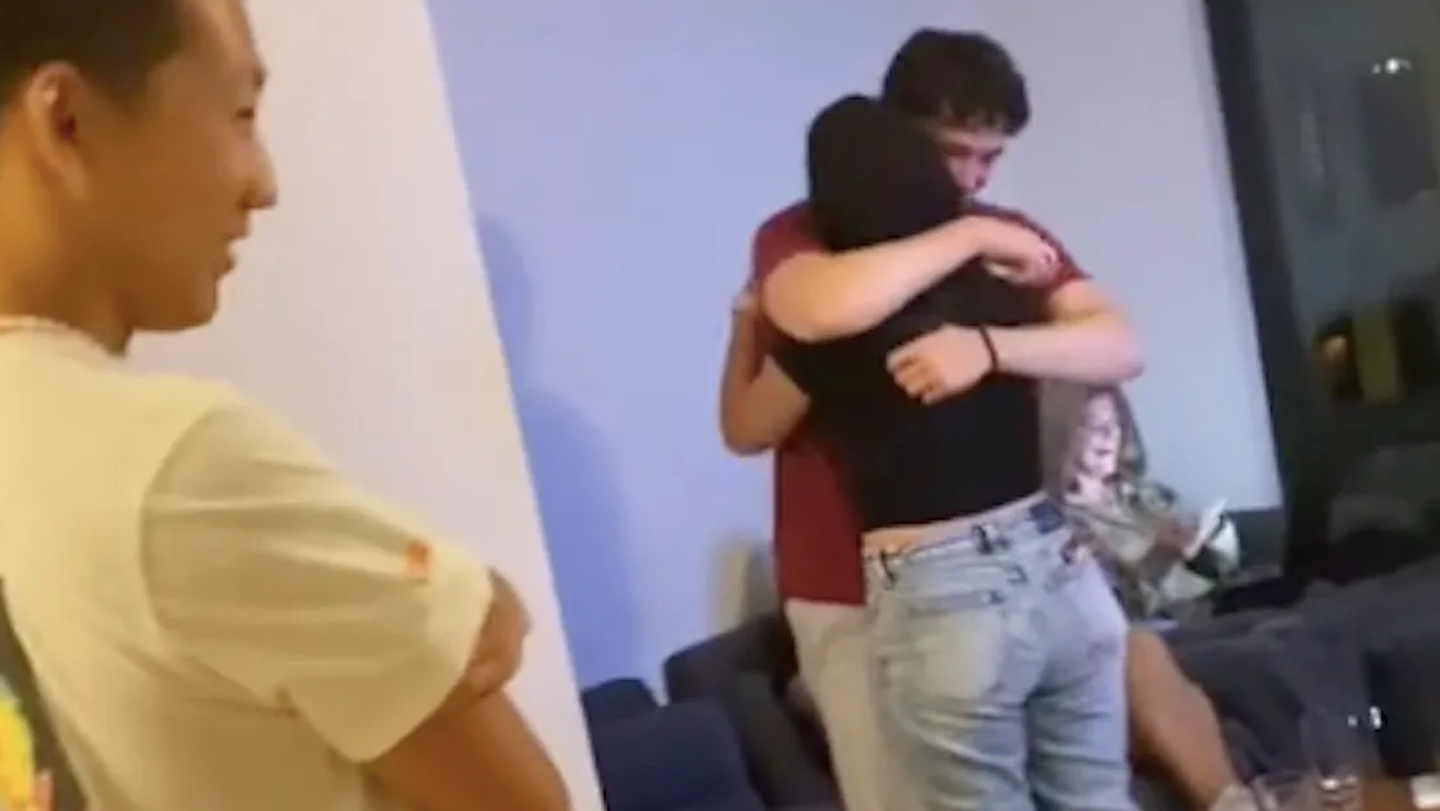The weird thing about memes and the internet is that, whenever someone goes viral, we tend to see them as a figure who exists in that very moment, rather than a person with their own history. Couch Guy was one of the most famous (or infamous) examples of this in 2021: a college student who was filmed being surprised by his long-distance girlfriend Lauren and, subsequently, was framed as the creator of all infidelity. For a while, he was the worst person on TikTok. Now, he’s revealed his identity — his name is Robert McCoy — and has reacted to his public reckoning. Understandably, he’s not too happy about it.
Okay, rewind back to October 2021: Robert’s girlfriend Laura has decided to surprise him by travelling to visit him at college. A friend films her entrance, and as she walks into the room, Robert looks over from a couch in the corner, where he is sitting with some other girls. He stands up and they hug; fairly average internet fodder. Cue the more forensic look into his body language, the position of his hands, and his reaction: was he hiding something?
People in the comments reacted angrily. In an op-ed Robert has written for Slate, he reiterates some of them: ‘Girl he ain’t loyal.’ ‘Red flag! He didn’t get up off the couch and jump up and down in excitement.’ ‘Bro if my man was on a couch full of girls I’M WALKING BACK OUT THE DOOR.’ Within weeks, the hashtag #CouchGuy had in excess of a billion views.
“While the Couch Guy meme was lighthearted on its surface, it turned menacing as TikTok users obsessively invaded the lives of Lauren, our friends, and me — people with no previous desire for internet fame, let alone infamy,” Robert wrote. “I was the subject of frame-by-frame body language analyses, armchair diagnoses of psychopathy, comparisons to convicted murderers and general discussions about my ‘bad vibes’.” And let’s be honest, who didn’t read several features in which psychologists divulged their take on the matter too?
He then talks about how the online anger started to manifest in real life, with notes, slid under his door by neighbours, requesting interviews. He says those that actually know him, like his girlfriend and closest friends, trust him completely. As such, he wrote: “My anxiety rests only in the prospect that the invasive TikTok sleuthing I experienced was not an isolated instance, but rather — as tech writer Ryan Broderick has suggested — the latest manifestation of a large-scale sleuthing culture.” He’s right. It did stoke our collective desire to engage in online sleuthing: a practise usually applied to unsolved true crime cases, but here applied to something that was baseless and menial when compared to, you know, murder.
It’s a dangerous hole to fall into, Robert says. “Given the apparent tendency of the TikTok algorithm to present viral spectacles to a user base increasingly hungry for content to analyse forensically, there will inevitably be more Couch Guys… When they appear on your For You page, I implore you to remember that they are people, not mysteries for you to solve.”
Read his full op-ed on Slate’s website here.
Follow i-D on Instagram and TikTok for more on internet culture.

